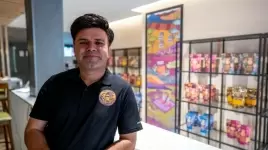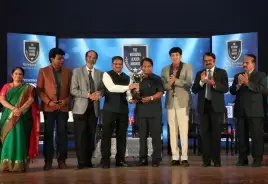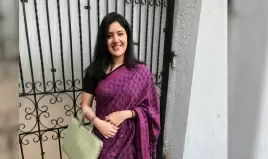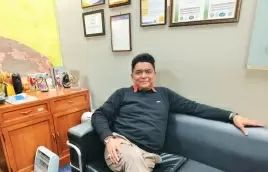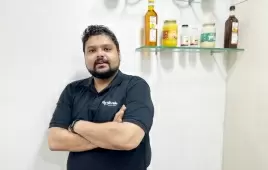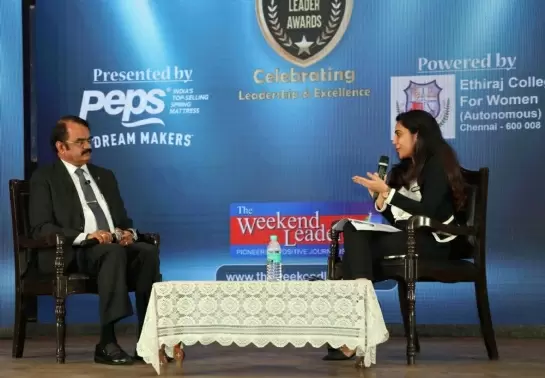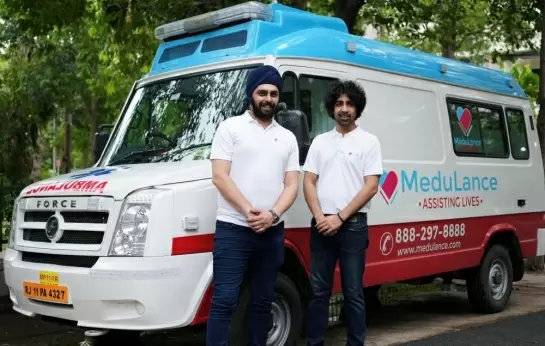Daughter of illustrious parents, Sanchaita understands the needs of rural poor

29-November-2013
Vol 4 | Issue 48
Sanchaita Gajapati Raju, 30, is delighted that she won the inaugural Google Global Impact Challenge India Award by polling the highest number of online votes for her vision of bringing clean drinking water and sanitation to villages in coastal Andhra Pradesh.
“Getting the maximum votes made the award even more special, for it shows that people understand the importance of providing basic needs like clean drinking water and sanitation to villagers,” says Sanchaita, who had set up her NGO, Social Awareness Newer Alternatives (SANA) in 2011.
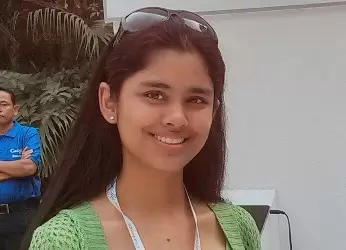 |
|
Sanchaita wants to provide clean drinking water and sanitation to villages
|
With the award money of Rs 3 crore she has plans to set up drinking water plants and bio-toilets in 10 villages in the districts of East Godavari and Vishakhapatnam in coastal Andhra.
She aims at providing 54 million liters of clean drinking water in the next 3 years and establishing 20 toilets in each of the 10 villages.
SANA would work in close association with the respective Panchayats. “Getting community involvement is very important for success of any project,” she says, exhibiting her understanding of the ground situation though she has been in community service only the last three years.
Since its inception SANA has implemented two drinking water projects, one at a school in East Delhi and another at N Chamavaram village in East Godavari, Andhra Pradesh.
At Chamavaram, the villagers have been made stakeholders in the project and a nominal fee is charged from the users for the water they consume.
SANA has trained the locals in maintaining the solar powered water treatment plant, which draws water from the ground and purifies it to WHO (World Health Organization) standards for drinking purposes.
The money collected from the villagers is used to pay the workers, who take care of repair and maintenance of the plant.
In Delhi, the plant was installed last year at Rajkiya Pratibha Vikas Vidyalaya (RPVV) in Surajmal Vihar, East Delhi.
“We are proud to have a solar project in our school to provide clean drinking water of WHO standard to our students and also their families,” says Renu Sabharwal, Principal RPVV.
She says the school has formed a committee consisting of students and teachers to operate the plant.
The students get first-hand knowledge of using green technology. “Children are allowed to take home 5 liters of clean drinking water from the plant. This project has improved attendance of children in the school, who mostly come from the nearby slums,” says Sanchaita.
Having worked in the field for about three years now, she has realized that rural areas need sanitation facilities as much as drinking water.
For the next three years, the projects in villages would integrate these two areas by using the waste water generated from the drinking water plants for use in the bio-toilets.
“The DRDO (Defence Research and Development Organization) has developed the bio-digester toilets, which would use bacteria to clean the sewage. After the bio-treatment the toilet waste can be used for agriculture,” says Sanchaita.
The bio-gas generated from the system would be used to provide lights for the toilets.
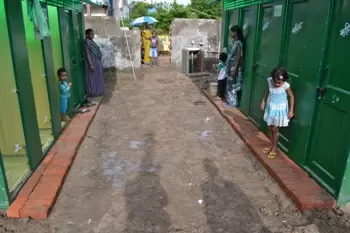 |
|
Bio-gas generated from the waste water will provide the power for the lights in the toilets
|
An alumnus of the prestigious Vasant Valley School in Delhi, she is happy that her formative years were shaped by a school that encouraged its students to follow their heart.
She is also grateful to her parents for being supportive to let her do what she felt passionate about.
Her mother Uma Gajapati Raju was a Lok Sabha MP from Vishakhapatnam, a well-known media personality and social worker.
She was actively involved with Rajiv Gandhi Foundation and had brought ‘Lifeline Express’, the train hospital, to the tribal belts of Andhra.
Her father Ramesh Sharma is an activist filmmaker who had won awards for his documentary, ‘The Journalist and the Jihadi - the murder of Daniel Pearl’.
Before setting up her NGO, she used to travel with her father and assist him in his work.
It was while accompanying him to Gulbarga in Karnataka for a project to study the impact of technology on agriculture that she saw the importance of technology in improving the lives of rural people.
She then set up her NGO and established the solar powered water treatment plants at N Chamavaram in Andhra Pradesh and RPVV in Delhi.
She has a degree in political science and law. “Knowledge of law is helpful in your work,” says Sanchaita, who is registered with the Delhi Bar Council.
Since her roots are in Andhra, having been born in Hyderabad, and brought up in Vishakhapatnam for few years before she moved to Delhi, she has chosen to work in the villages of coastal Andhra.


